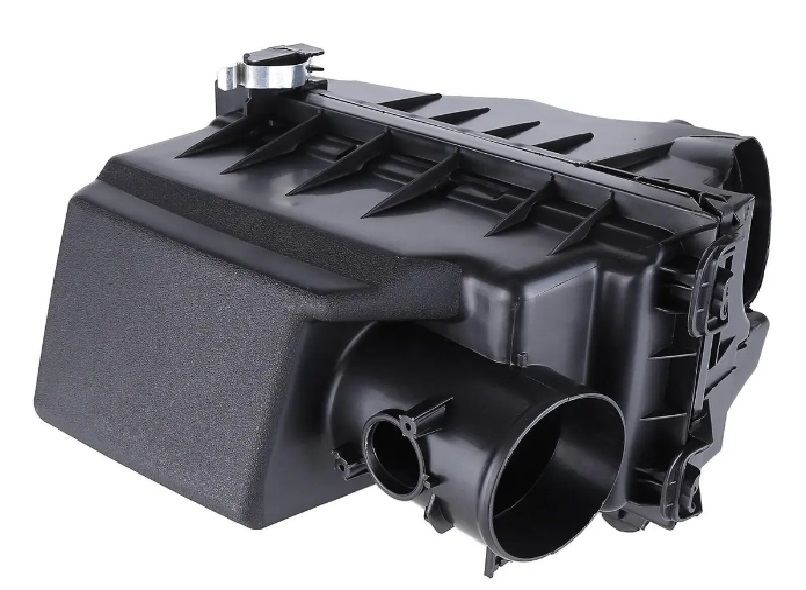The Advantages of Hot Plate Welding Machines for Car Filter Housings

When it comes to joining plastic components, hot plate welding machines have emerged as a reliable and efficient solution. Specifically, in the automotive industry, these machines are widely used for welding car filter housings. In this comprehensive guide, we will explore the advantages of hot plate welding machines for car filter housings and how they contribute to the overall efficiency and reliability of the manufacturing process.
What is Hot Plate Welding?
Hot plate welding is a thermal joining process that involves melting the joining surfaces of plastic components using a heated plate or platen. The melted surfaces are then pressed together to create a strong and permanent bond. This method is highly effective for materials like polyethylene, polypropylene, and PVC, making it ideal for welding car filter housings.
Advantages of Hot Plate Welding Machines
1. Versatility in Welding Large and Complex Parts
One of the key advantages of hot plate welding machines is their ability to weld large parts and components with complex geometries. Unlike other joining methods like ultrasonic welding or vibration welding, hot plate welding can handle the size and shape requirements of car filter housings. This versatility allows manufacturers to produce filter housings with intricate designs and contours, ensuring a perfect fit and optimal functionality.
2. Strong and Leak-Tight Joints
Hot plate welding produces strong and leak-tight joints in plastic assemblies. The process ensures that the melted edges of the plastic parts fuse together, creating a seamless connection. This is particularly important for car filter housings, as any leaks or weak joints can compromise the efficiency and effectiveness of the filtration system. Hot plate welding provides the reliability and durability necessary for the demanding automotive industry.
3. Consistent and Precise Temperature Control
Hot plate welding machines offer precise temperature control, ensuring that the welding process is carried out at the optimal temperature for the specific plastic material being used. This consistency in temperature control ensures uniform melting and bonding of the plastic components, resulting in high-quality welds. The ability to control the temperature precisely is crucial, as different plastics have specific melting points that need to be met for successful welding.
4. Customization for Specific Welding Requirements
Hot plate welding machines can be customized to meet specific welding requirements, making them versatile for various industries. Manufacturers can tailor the welding parameters such as heating time, joining pressure, and holding time to achieve the desired results for car filter housings. This customization allows for greater control over the welding process, ensuring the highest quality welds and meeting the specific standards of the automotive industry.
5. Energy Efficiency and Cost Savings
Hot plate welding machines are designed to be energy-efficient, reducing operational costs for manufacturers. The heating elements within the machines are optimized for energy consumption, minimizing waste and maximizing efficiency. This energy efficiency not only reduces costs but also contributes to a more sustainable manufacturing process. By investing in hot plate welding machines, manufacturers can achieve cost savings in the long run while maintaining high-quality welds.
6. Increased Production Speeds and Repeatability
Hot plate welding machines offer increased production speeds and optimal repeatability. The machines are designed to handle multiple assemblies simultaneously, reducing the overall production time. This increased efficiency allows manufacturers to meet high-demand production requirements and deliver products to the market in a timely manner. Additionally, the repeatability of hot plate welding ensures consistent quality in every weld, eliminating variations and ensuring uniformity in the final product.
Applications of Hot Plate Welding Machines for Car Filter Housings
Hot plate welding machines find widespread applications in the automotive industry, specifically for welding car filter housings. The filtration system plays a crucial role in maintaining the performance and longevity of the engine. The hot plate welding process ensures that the filter housing is securely sealed, preventing any contaminants from entering the engine. Some specific applications of hot plate welding for car filter housings include:
- Air and Oil Filters: Hot plate welding machines are used to weld the plastic components of air and oil filters, ensuring a secure and leak-tight housing for efficient filtration.
- Fuel Filters: Car fuel filters require a strong and durable housing to withstand the pressure and flow of fuel. Hot plate welding ensures a reliable bond between the plastic components, ensuring the integrity of the fuel filter housing.
- Coolant Filters: Maintaining the coolant system's cleanliness is crucial for the engine's performance. Hot plate welding is employed to weld the plastic components of coolant filters, ensuring a tight seal and preventing any contaminants from entering the cooling system.
- Particle Filters: Particle filters, often used in diesel engines, require a robust housing to capture and remove particulate matter from the exhaust gases. Hot plate welding machines provide the necessary strength and durability for particle filter housings, ensuring efficient filtration.
Conclusion
Hot plate welding machines have revolutionized the process of welding car filter housings. With their versatility, precision temperature control, and ability to produce strong and leak-tight joints, these machines have become an indispensable tool for the automotive industry. The advantages of hot plate welding machines, such as customization, energy efficiency, and increased production speeds, make them the ideal choice for manufacturers seeking reliable and efficient solutions for car filter housing welding. By investing in hot plate welding technology, manufacturers can ensure the durability, performance, and longevity of their car filter housings, contributing to the overall efficiency and reliability of automotive vehicles.





